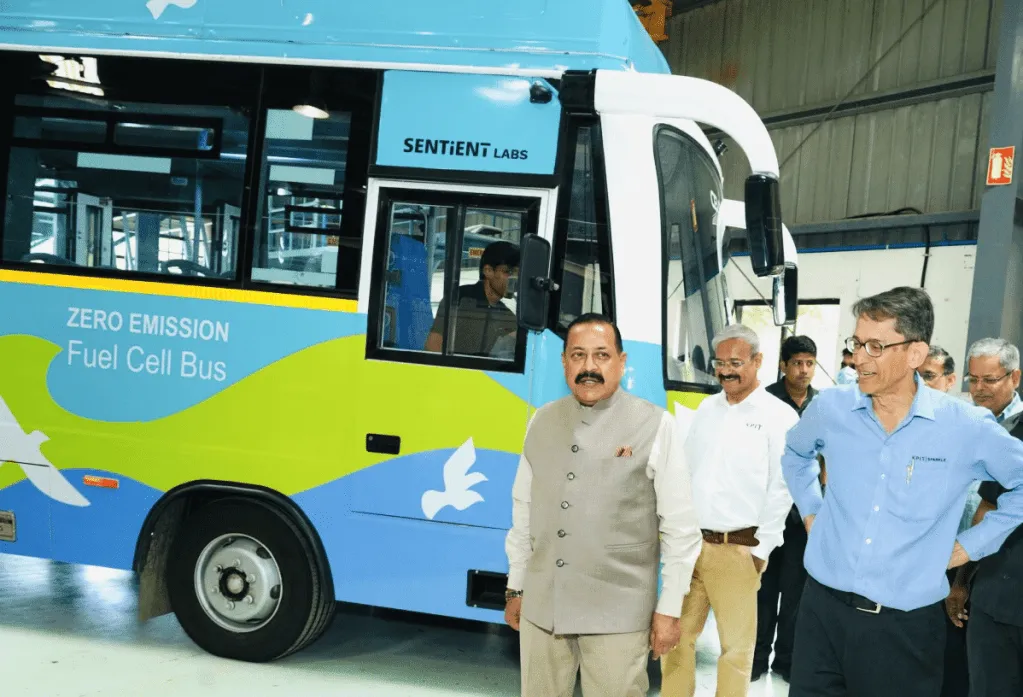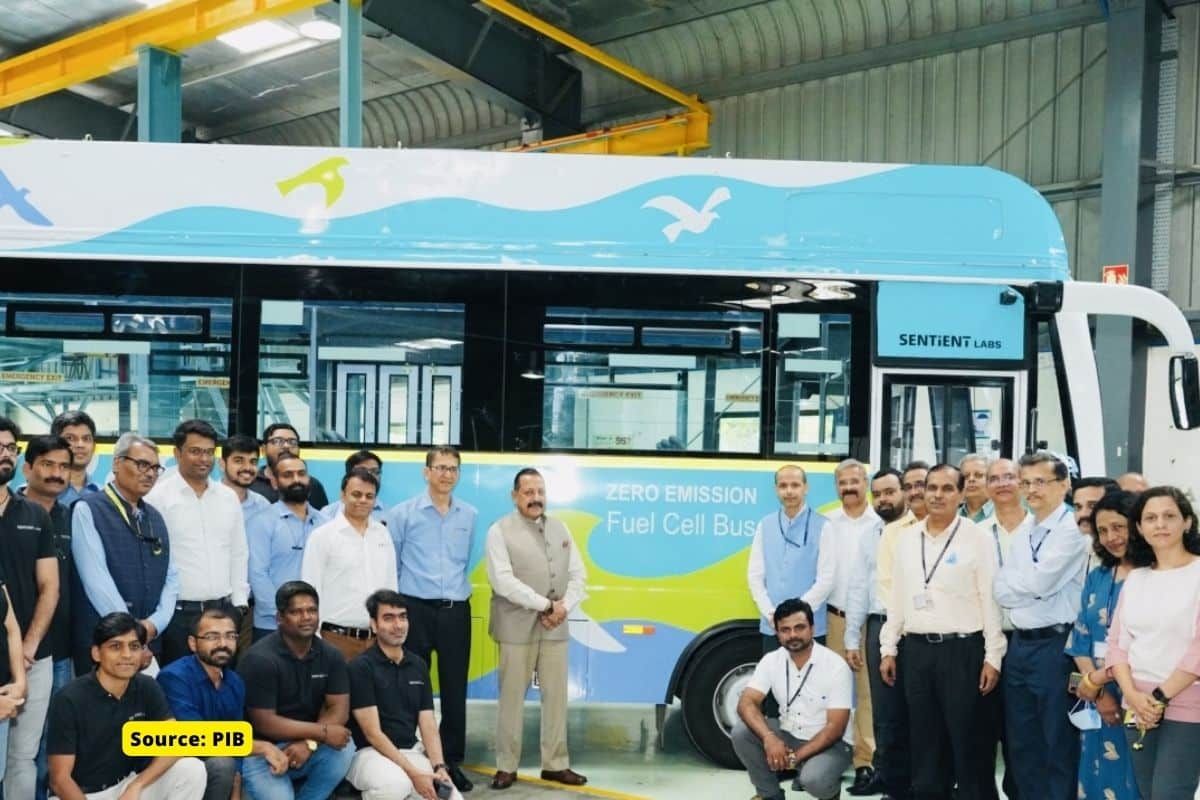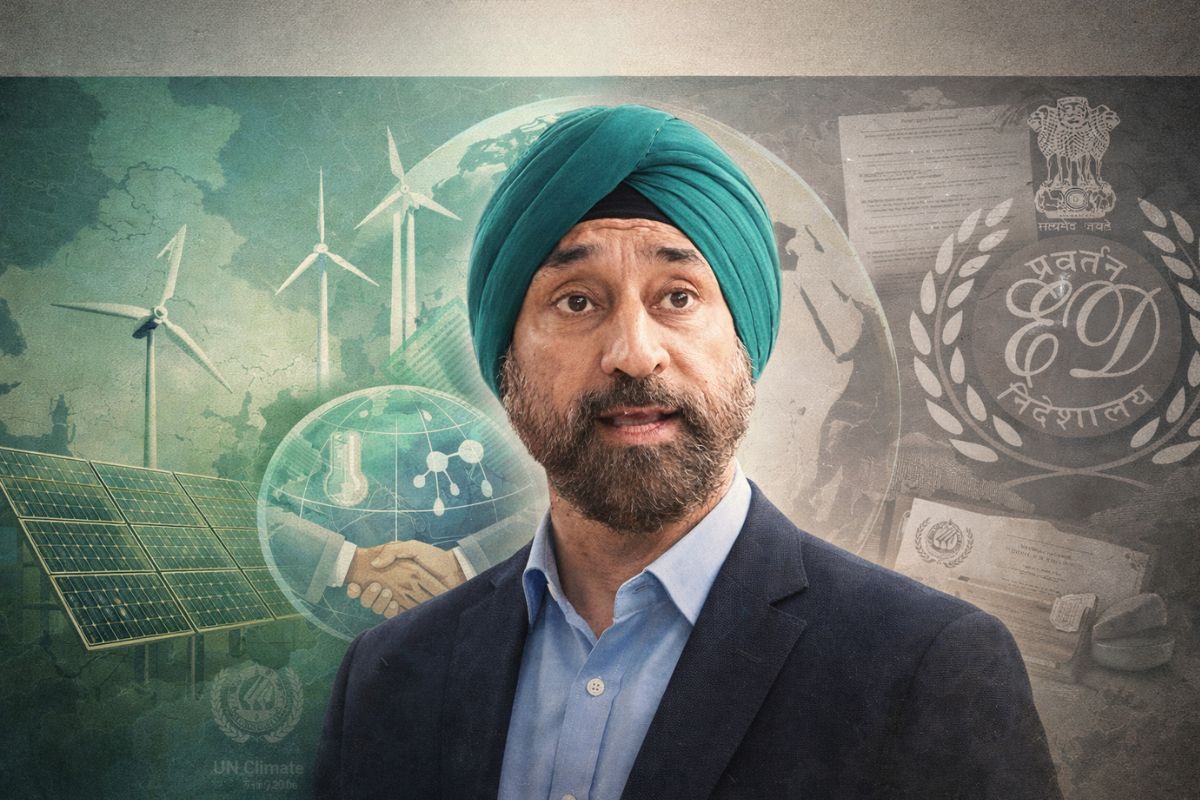Union Minister of State (Independent Charge) for Science and Technology, Dr. Jitendra Singh, launched India’s first truly developed hydrogen fuel cell bus on Sunday (Aug 21).
Developed by KPIT-CSIR in Pune, the fuel cell uses hydrogen and air to generate electricity to run the bus, and the only effluent from the bus is water.
For comparison, a single diesel bus running on long-distance routes typically emits 100 tons of CO2 per year, and there are more than a million such buses in India.
In addition, the high efficiency of fuel-cell vehicles and the high energy density of hydrogen ensure that operating costs in rupees per kilometre for fuel-cell trucks and buses are lower than diesel-powered vehicles.

“Green hydrogen is an excellent vector of clean energy that allows a deep decarbonization of emissions that are difficult to reduce from the refining industry, the fertilizer industry, the steel industry, the cement industry and also from the heavy commercial transport sector. ”, said the union minister.
“India can pole-jump from being a net importer of fossil energy to becoming a net exporter of clean hydrogen energy,” he added.
For comparison, a single diesel bus running on long-distance routes typically emits 100 tons of CO2 a year and there are more than a million such buses in India, the statement added. The operating cost of hydrogen fuel cell trucks is lower than diesel-powered ones and this could spark a cargo revolution in the country, he said.
“Around 12 to 14 per cent of CO2 emissions come from heavy-duty diesel-powered vehicles. Hydrogen fuel cell vehicles provide an excellent means of eliminating on-road emissions in this sector,” he said.
Dr Jitendra Singh said the high efficiency of fuel cell vehicles and the high energy density of hydrogen ensures that the operational costs in rupees per kilometre for fuel cell trucks and buses are lower than diesel-powered vehicles and this can bring freight revolution in India. Moreover, Fuel Cell vehicles also give zero greenhouse gas emissions. The Minister lauded the joint development efforts of KPIT and CSIR-NCL and pointed out that the technology prowess of Indian scientists and engineers is no less than the best in the world and also at much lower costs.
Dr Jitendra Singh pointed out that about 12-14% CO2 emissions and particulate emissions come from diesel-powered heavy commercial vehicles and these are decentralised emissions and hence difficult to capture. The Minister said, Hydrogen fuelled vehicles provide an excellent means to eliminate the on-road emissions from this sector. He said India is also aiming to increase inland waterways for freight and passenger transport.
Dr Jitendra Singh concluded that by achieving these goals, India can pole-vault from being net importer of fossil energy to becoming net exporter of clean hydrogen energy and thus, providing global leadership to India in hydrogen space by becoming a large green hydrogen producer and supplier of equipment for green hydrogen.
Later, Dr Jitendra Singh inaugurated the Bisphenol-A pilot plant in CSIR-NCL and said these pilot plants have successfully demonstrated novel process technologies developed by NCL under CSIR’s Covid-19 mission program and Bulk Chemicals mission program.
Dr Jitendra Singh said, Bisphenol-A (BPA) is an important feedstock for the production of epoxy resins, polycarbonate and other engineering plastics. He said the global market for Bisphenol-A is projected to reach 7.1 Million Tons by 2027, growing at a CAGR of 2% over the analysis period 2020-2027. The entire estimated annual demand of 1, 35,000 tons in India is imported today. The Minister hoped that CSIR-NCL’s technology will enable import substitution of this important raw material and help in India’s Atmanirbhar initiative.
What is a hydrogen fuel cell?
According to the US Department of Energy, fuel cells work similarly to conventional batteries found in electric vehicles, but they don’t run out and don’t need to be recharged with electricity. They continue to produce electricity as long as there is a supply of hydrogen. Like conventional cells, a fuel cell consists of an anode (negative electrode) and a cathode (positive electrode) sandwiched around an electrolyte.
Support us to keep independent environmental journalism alive in India.
Keep Reading
MP farmers battle stray animals, and sleepless nights to protect crops
Pesticides and agriculture threaten Sarus Cranes at Indore’s Yashwant Sagar wetland
Changing weather patterns impacts soybean crops in the Dewas region of MP
Follow Ground Report on X, Instagram and Facebook for environmental and underreported stories from the margins. Give us feedback on our email id greport2018@gmail.com.
Don’t forget to Subscribe to our weekly newsletter, Join our community on WhatsApp, Follow our Youtube Channel for video stories.









